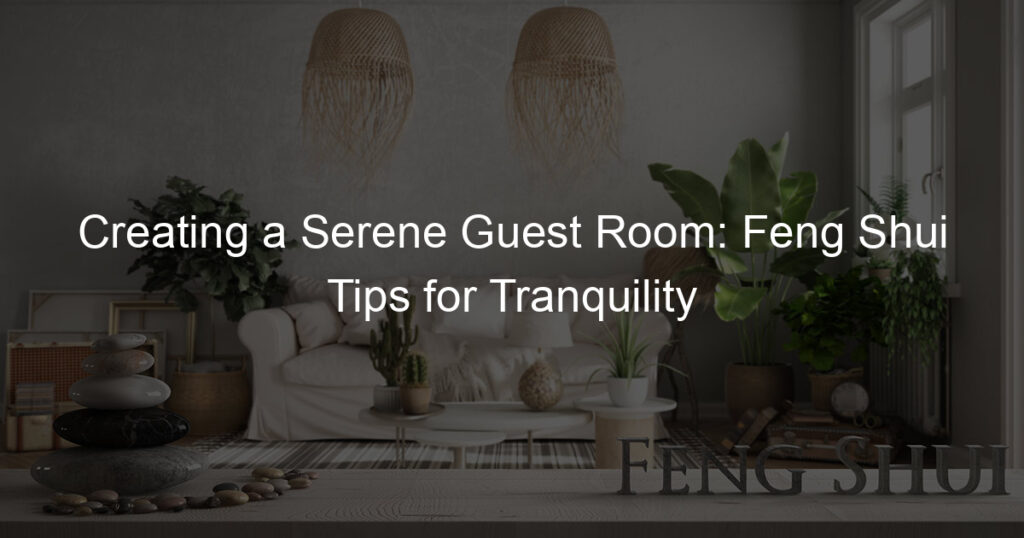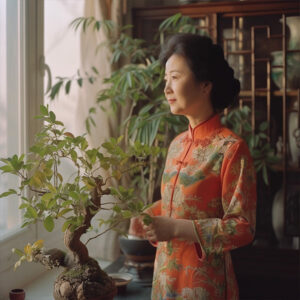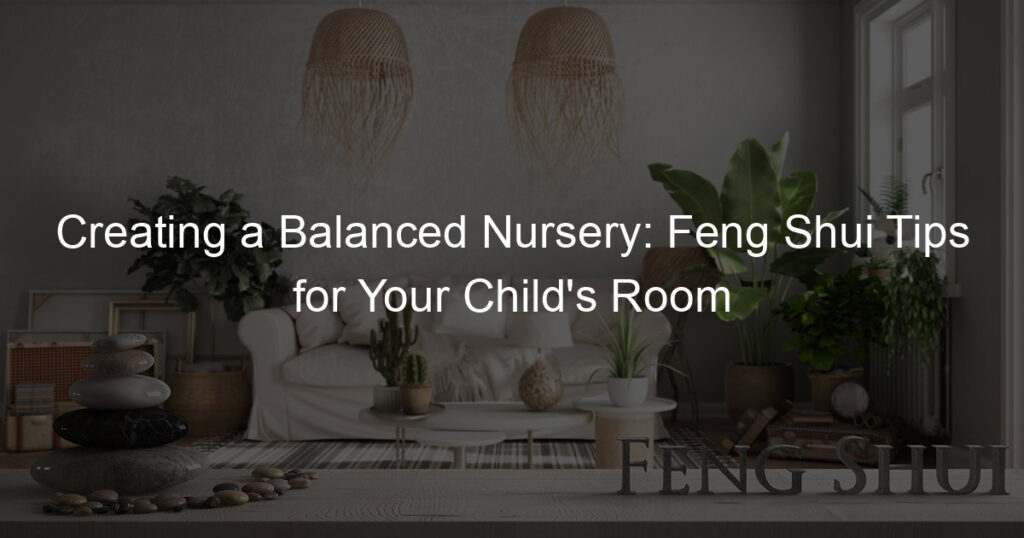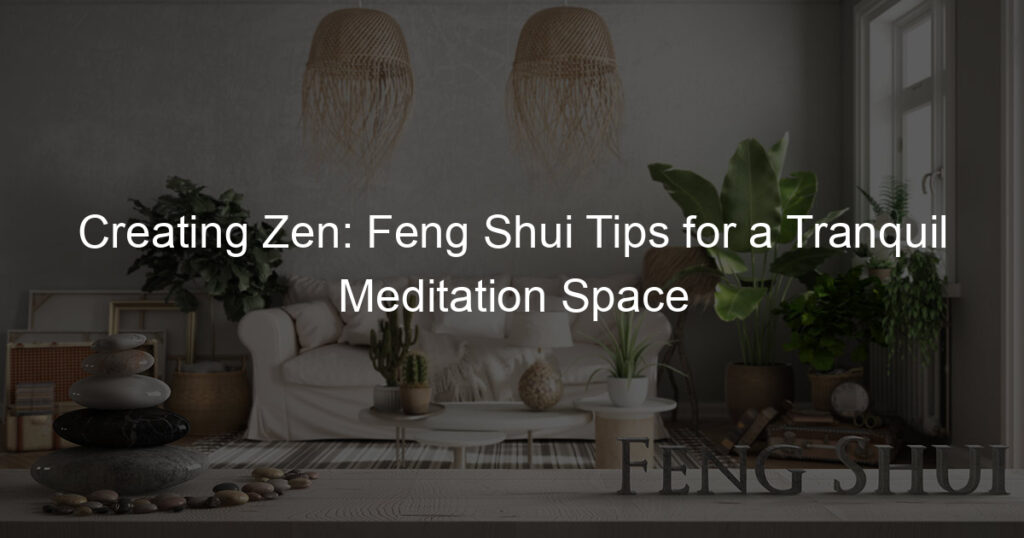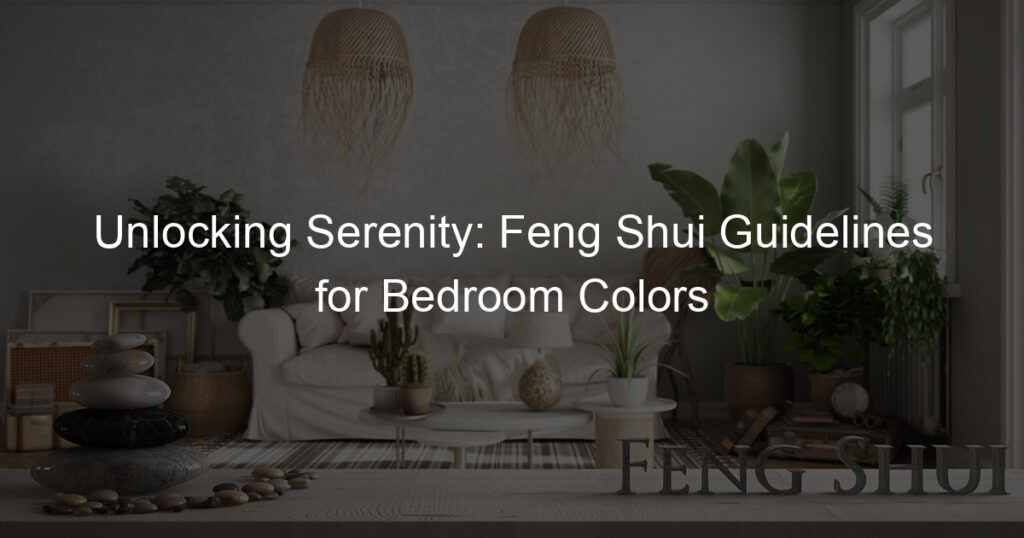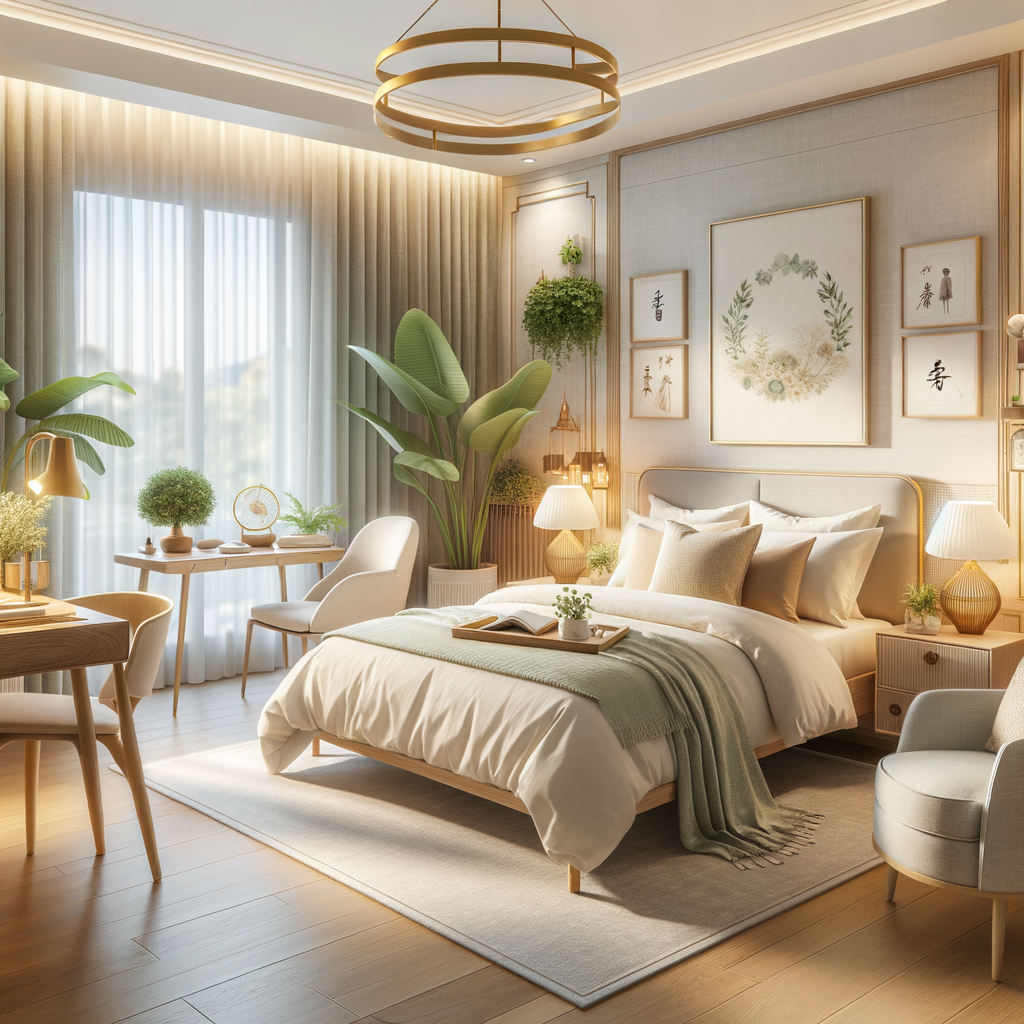
Introduction to Feng Shui Bedroom Design
Creating a serene and peaceful bedroom environment is essential for a good night’s sleep. One way to achieve this tranquility is through the ancient Chinese practice of Feng Shui. Let’s delve into the principles of Feng Shui and understand its importance in creating tranquil spaces.
- Understanding the principles of Feng Shui
- Importance of Feng Shui in creating tranquil spaces
Feng Shui, which translates to ‘Wind Water’, is a 3,000-year-old philosophy that focuses on balancing energies in a given space. It is believed that by arranging your surroundings in harmony with the principles of the natural world, you can experience health, happiness, and prosperity. The main principles of Feng Shui involve the command position, the five elements (wood, fire, earth, metal, and water), and the Bagua, or energy map of your home.
Applying Feng Shui principles to your bedroom design can significantly impact your wellbeing. A well-balanced room can promote a harmonious flow of nourishing and sensual energy. This energy can invite calmness, prevent stress, and provide a restful and rejuvenating sleep. In a study, 53% of participants reported improved sleep quality after implementing Feng Shui in their bedrooms. Hence, understanding and applying Feng Shui can be a vital tool in creating tranquil spaces in your home.
To summarize, Feng Shui is not just about rearranging furniture. It’s about creating a space that harmonizes with your personal energy and promotes health and happiness. As we move forward, we will explore more about the key elements of a tranquil retreat design and how to apply Feng Shui in guest bedrooms and home retreats.
Key Elements of a Tranquil Retreat Design
In designing a tranquil retreat, certain elements are crucial to ensuring a serene and peaceful atmosphere. Let’s delve into some Feng Shui tips that can help create a tranquil bedroom.
Feng Shui Home Tips for a Tranquil Bedroom
Feng Shui, an ancient Chinese practice, is all about harmonizing your environment to improve your well-being. Here are some Feng Shui tips to help you design a tranquil bedroom:
- Choosing the right location for your guest bedroom
- Optimizing the layout for positive energy flow
- Choosing the right colors for tranquility
The location of your bedroom plays a significant role in Feng Shui. It is ideal to have your bedroom far from the front door or any busy street to minimize noise and distractions. A quiet location promotes tranquility and restful sleep.
The layout of your bedroom is another crucial factor. The bed should be placed in a ‘commanding position’ – this means you should be able to see the door from your bed, but not be directly in line with it. This arrangement allows for a positive flow of energy and a sense of security.
Colors significantly influence our mood and energy levels. For a tranquil bedroom, opt for soothing colors like light blues, greens, and earth tones. These colors are known to promote relaxation and calmness.
By carefully considering these elements, you can create a tranquil retreat that not only looks good but also feels good. Remember, the goal of Feng Shui is to create a harmonious environment that supports your well-being and tranquility.
Creating a Balanced Environment with Feng Shui Elements
Creating a balanced environment using Feng Shui elements is not just about arranging furniture. It’s about creating a space that promotes tranquility and peace. Let’s explore some key elements that can help you achieve this.
- Importance of Natural Light and Air
- Using Plants for a Calming Effect
- Choosing the Right Artwork and Decorations
Natural light and air play a crucial role in Feng Shui. They bring in positive energy and help to balance the environment. It’s important to allow as much natural light into your room as possible. Open windows regularly to let in fresh air. This not only improves the air quality but also helps to circulate energy.
Plants are a great way to introduce a calming effect into your space. They not only add a touch of nature but also help to purify the air. Some Feng Shui-friendly plants include the peace lily, bamboo, and the snake plant. Remember, healthy, vibrant plants are considered good Feng Shui, so take good care of them.
The artwork and decorations in your room can greatly influence the energy of the space. Choose pieces that inspire and uplift you. Avoid artwork that is dark, lonely, or sad. In Feng Shui, it’s believed that the images you surround yourself with will become a part of your life. So, choose wisely.
In conclusion, creating a balanced environment using Feng Shui elements involves more than just furniture arrangement. It’s about creating a space that promotes peace and tranquility. By paying attention to natural light and air, using plants for a calming effect, and choosing the right artwork and decorations, you can create a space that not only looks good but also feels good.
Guest Bedroom Design: Feng Shui for Tranquility
Creating a tranquil guest bedroom is not just about choosing the right color palette or adding cozy bedding. It’s also about applying the principles of Feng Shui, an ancient Chinese practice that aims to harmonize individuals with their surrounding environment. Let’s explore how bed placement and orientation can contribute to a peaceful and inviting guest bedroom.
Bed Placement and Orientation
The position of the bed in your guest room can significantly impact the quality of sleep your guests experience. Let’s delve into the two key aspects of bed placement and orientation.
- Proper bed placement for a peaceful sleep
- Importance of headboard positioning
According to Feng Shui principles, the bed should be placed in the ‘command position.’ This means it should be placed diagonally opposite the door, but not directly in line with it. This position allows the sleeper to have a clear view of the door, providing a sense of security and control. It’s believed that this placement promotes better sleep and relaxation.
The headboard of the bed plays a crucial role in Feng Shui. It should be firmly attached to the bed and placed against a solid wall. This setup provides support, strength, and stability, promoting a sense of safety while sleeping. Avoid placing the headboard against a window, as it’s believed to create instability and restlessness.
By considering these Feng Shui principles in your guest bedroom design, you can create a space that promotes tranquility and restful sleep. Remember, the goal is to make your guests feel comfortable and relaxed during their stay.
Creating a Clutter-Free Space
One of the most important aspects of creating a tranquil environment with Feng Shui is maintaining a clutter-free space. Clutter can disrupt the flow of energy, or ‘chi’, in a room, causing stress and unease. By keeping our spaces tidy and organized, we can promote a more serene and peaceful environment.
- Importance of decluttering in Feng Shui
- Organizing the guest room for a serene environment
Decluttering is a key principle in Feng Shui. It’s not just about making a space look neat and tidy. It’s about removing obstacles for the flow of positive energy. According to Feng Shui, clutter represents stagnant energy and can lead to feelings of being stuck or overwhelmed. By decluttering, we can make room for new energy and opportunities to flow into our lives. This can lead to a feeling of calm and tranquility, which is especially important in a guest room where we want our visitors to feel at ease.
When it comes to organizing the guest room, it’s not just about where you put the furniture. It’s about creating a space that promotes relaxation and peace. Start by removing any unnecessary items. This includes any old furniture, unused items, or anything that doesn’t serve a purpose. Next, organize the remaining items in a way that promotes a smooth flow of energy. This could mean arranging the furniture in a certain way, or using storage solutions to keep items neatly tucked away. Remember, the goal is to create a space that feels open, airy, and inviting.
In conclusion, creating a clutter-free space is not just about aesthetics. It’s about promoting a sense of peace and tranquility. By decluttering and organizing our spaces, we can create an environment that is conducive to relaxation and rest, making our guests feel more at home.
Home Retreat Design Tips: Feng Shui Guest Bedroom
Creating a tranquil guest bedroom with Feng Shui is an art. It’s about creating a space that promotes relaxation and serenity. Let’s explore how to use Feng Shui symbols to achieve this.
Using Feng Shui Symbols for a Tranquil Home Design
Feng Shui symbols can be powerful tools in creating a tranquil home design. They can help balance the energy in a room and promote a sense of peace and calm. Here are two key steps to using these symbols effectively:
- Choosing the right Feng Shui symbols for tranquility
- Placement of Feng Shui symbols in the guest room
There are many Feng Shui symbols that promote tranquility. For instance, the Lotus flower symbolizes purity and peace. Another symbol is the Bamboo, which represents resilience and flexibility. Choosing the right symbols for your guest bedroom depends on the energy you want to create. Remember, the goal is to create a space that helps your guests relax and feel at ease.
Placement is key in Feng Shui. For tranquility, place your symbols in the east or southeast of the room. These areas are associated with health and family, respectively, promoting a sense of peace. Also, avoid placing symbols in areas where they might be overlooked or blocked, as this can disrupt the flow of positive energy.
By carefully choosing and placing your Feng Shui symbols, you can create a guest bedroom that is not just aesthetically pleasing, but also a haven of tranquility for your guests.
Creating a Sensory Experience
When designing a tranquil guest bedroom using Feng Shui principles, it’s essential to consider the sensory experience. This involves not only the visual elements but also the scents and sounds that fill the space. These elements can significantly impact the overall feel of the room, contributing to a sense of calm and tranquility.
-
Using Scents for a Calming Effect
The use of scent in a room can have a profound effect on the mood and atmosphere. Certain scents, such as lavender, chamomile, and sandalwood, are known for their calming properties. Incorporating these scents into your guest bedroom can help create a relaxing environment.
There are several ways to introduce these calming scents into the room. You could use scented candles, essential oil diffusers, or even scented sachets tucked into drawers or hung in the closet. Remember, the goal is to create a subtle, soothing aroma, not an overpowering fragrance.
-
Importance of Sound in Creating a Tranquil Space
Sound also plays a crucial role in creating a tranquil space. In Feng Shui, flowing water is considered to bring positive energy into a room. Consider incorporating a small indoor water feature, such as a tabletop fountain, into your guest bedroom design. The gentle sound of flowing water can be incredibly soothing and help to mask any unwanted noise.
Alternatively, a white noise machine or a device that plays soft, calming sounds, like rain or waves, can also contribute to a peaceful atmosphere. The key is to choose sounds that are relaxing and not disruptive to your guest’s rest.
In conclusion, creating a sensory experience is a vital part of designing a tranquil guest bedroom using Feng Shui principles. By carefully considering the scents and sounds in the room, you can create a space that not only looks calming but feels calming too.
Conclusion: Feng Shui Design Tips for Creating Tranquil Spaces
In this blog post, we have journeyed through the fascinating world of Feng Shui and its application in creating tranquil spaces, particularly in the design of a guest bedroom. Let’s take a quick recap and highlight the key takeaways.
- Recap of Feng Shui principles for a tranquil guest room
- Key takeaways for creating a serene guest room with Feng Shui
- Decluttering is the first step to creating a tranquil space. A clutter-free room allows energy to flow freely.
- Color plays a significant role in Feng Shui. Soft, earthy tones are ideal for promoting tranquility.
- The position of the bed can affect the quality of sleep. It should be placed far from the door but not directly in line with it.
- Incorporating natural elements like plants and water features can enhance the tranquility of the room.
Feng Shui principles are all about harmonizing the energy in your space. For a guest room, we discussed the importance of decluttering, choosing the right colors, and positioning the bed properly. We also emphasized the role of natural elements like plants and water features in promoting tranquility.
Creating a serene guest room with Feng Shui is not as complicated as it may seem. The key takeaways include:
Remember, the goal of Feng Shui is to create a balanced and harmonious environment. By applying these principles, you can transform your guest room into a tranquil retreat that your guests will love. Happy designing!

